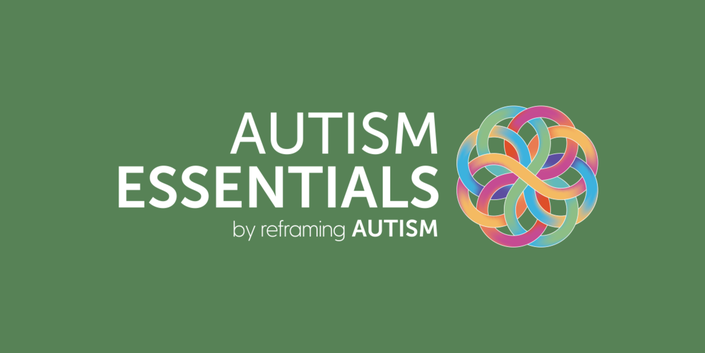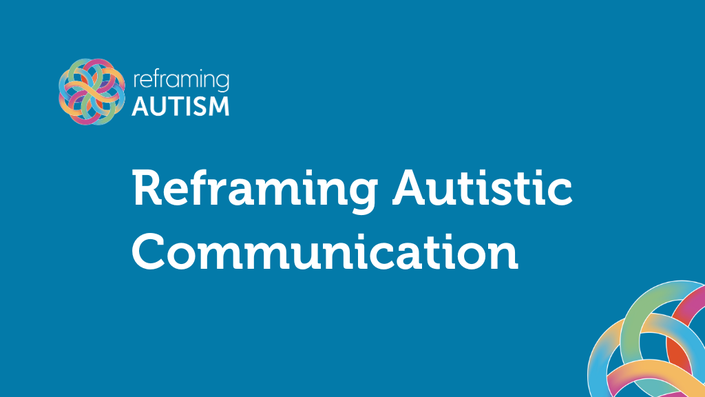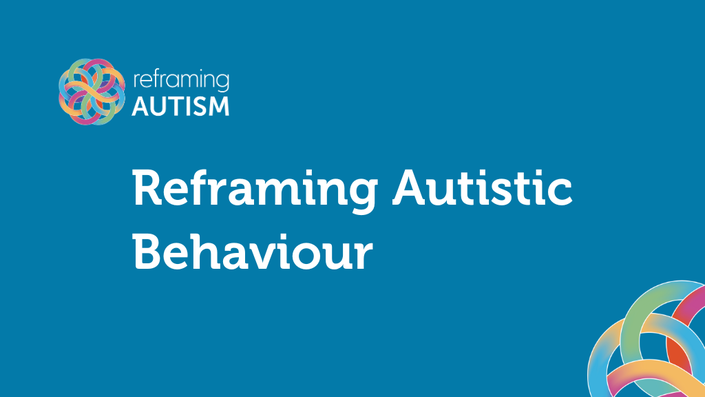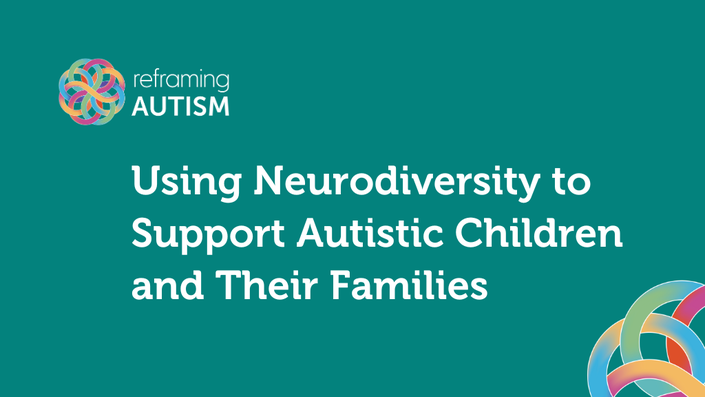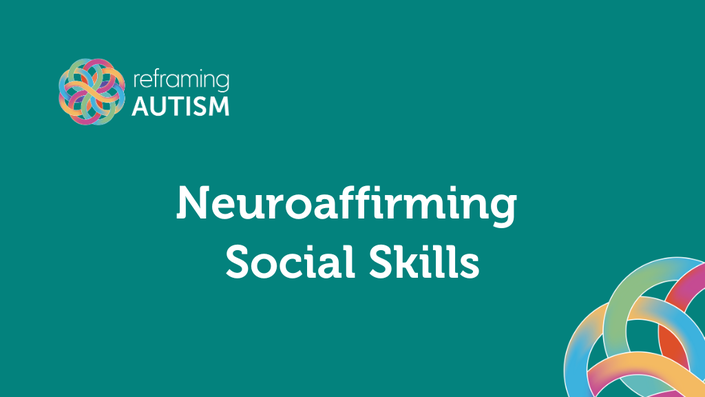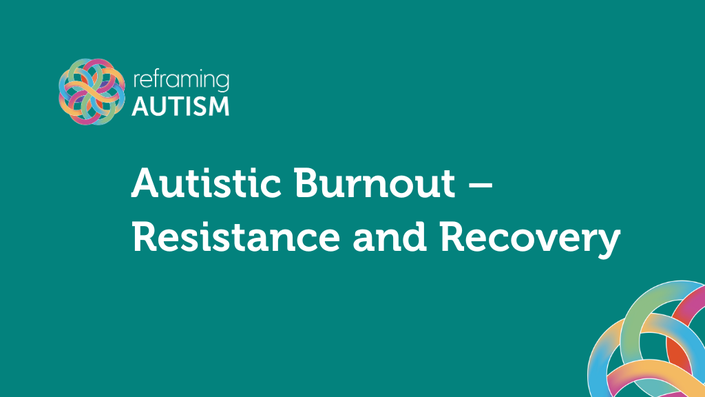This bundle provides access to a comprehensive suite of profesisonal learning.
Reframing Autistic Communication and Socialisation Short Course: 6 hours CPD
Our Professional Short Course on Reframing Autistic Communication and Socialisation is an enlightening and practical course that delves into the unique ways Autistic individuals communicate and socialise. Rooted in the double-empathy problem, this course repositions communication as a cultural exchange, challenging outdated and pathologising views. It will enhance your understanding of Autistic clients and students, equipping you with the knowledge and strategies to support authentic and meaningful interactions.
Throughout the course, you will engage with affirming research and invaluable insights from Autistic lived expertise, providing a balanced and respectful approach to understanding Autistic communication.
Reframing Autistic Behaviour Short Course: 6 hours CPD
Our Professional Short Course on Reframing Autistic Behaviour is a practical and rewarding course that explores common Autistic behaviours (including meltdowns, shutdowns, and burnout) and their underlying root causes. It will increase your understanding of your Autistic clients and students while providing you with the skills to enhance their flourishing across the lifespan through respectful support that fosters resilience, autonomy, and authenticity.
During the Professional Short Course, you will have access both to academic research, as well as to Autistic lived expertise, which is considered as equally – if not more – valuable as peer-reviewed academic literature.
Autism Essentials with Professional Development Certificate: 2 hours CPD
This course provides a solid understanding of Autism in a way that is neuro-affirming. This means we talk about Autism and Autistic people in a way that is respectful of who we are, our strengths and our challenges, and does not prioritise non-Autistic ways of being, thinking and doing.
Using Neurodiversity to Support Autistic Children and Their Families: 2.5 hours CPD
Join our founder and Head of Research, Dr Melanie Heyworth, in this invaluable webinar, as she redefines Autism from an Autistic perspective. Melanie examines the ways in which neurodiversity can help you to reframe your thinking about Autism and explores how this new understanding can inform the way you approach and support the Autistic children in your care.
This comprehensive learning opportunity is grouped around three elements – reframing Autism, neurodiversity, and implications for practice.
Using the theoretical underpinnings of double empathy and radical acceptance, we explore what Autism is from an Autistic perspective, so that professionals have the requisite knowledge to understand how to foster Autistic authenticity. Part of the learning is focused on some basic neuroscience, so that professionals can understand some of the complexity of the Autistic brain, to be able to work with Autistic neurology. Understanding the Autistic neurotype is key for professionals engaging with their Autistic clients with compassion and empathy.
We also explore the neurodiversity paradigm in more depth, and examine some traditional approaches to Autism (like thinking of the spectrum as linear) from a neurodiversity perspective. From a neurodiversity perspective, we thus explore Autism as an identity, and reframe Autistic communication, body language, stimming, sensory processing and social skills.
In terms of practical information, we also explore the need for relational connections over external motivators, and give some more information about what a strengths-based and person-centred approach looks like when engaging with Autistic children therapeutically.
Neuroaffirming Social Skills: 2.5 hours CPD
Often, allied health, psychology and even educational professionals are tasked with providing social skills courses or groups to Autistic children. Unfortunately, such courses regularly teach Autistic children to mask or suppress their organic Autistic ways of being and privilege non-autistic social interaction. However, if they are done well, social skills programs can be used to build bidirectional understanding and empathy between Autistic children and their non-autistic peers. When approached from the double-empathy construct, social skill programs can be a conduit to a cultural exchange and, ultimately, be neuroaffirming and neuroinclusive for Autistic children.
Learn more about the principles underpinning neuroaffirming social skills, in which Dr Melanie Heyworth will explore some of the more standard approaches to teaching Autistic children social skills and show you ways that you can innovate to provide respectful, inclusive support to the Autistic children in your care, and to their peers. Learn why certain non-autistic social skills are simply not appropriate or useful for Autistic children, and how you can construct social skills programs that will foster genuine social connection and friendships.
Autistic Burnout: Resistance and Recovery: 1 hour CPD
Join KJ Wiseheart for a thought-provoking and validating webinar on the complexities of Autistic burnout, the concept of resistance, and the path to recovery. Using insights from both academic research and lived experience experts, KJ discusses the factors contributing to burnout, highlights the critical role of community experiences in fostering recovery, and explores ways to adjust expectations to better support ourselves and others. As a multiply-divergent counsellor and narrative practitioner with lived experience of Autistic burnout, KJ offers an insightful perspective on how we can better navigate and understand the challenges of Autistic burnout.
Bundle Contents
Enjoy a comprehensive suite of professional learning

